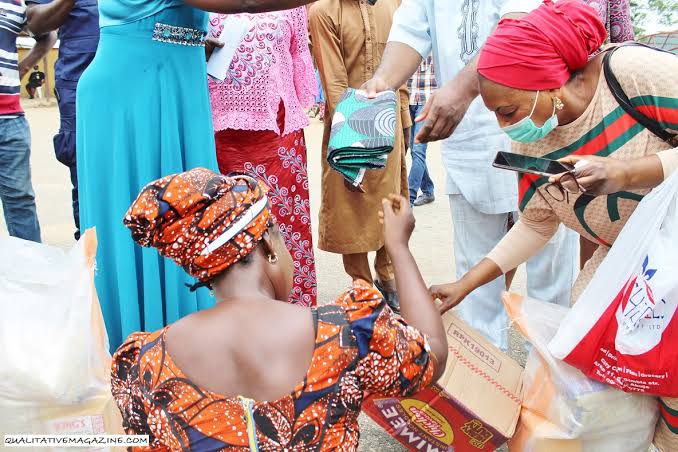By Alao Abiodun
The Federal Government has been urged to improve its COVID-19 interventions response in health, humanitarian, and gender sectors to meet the needs of Women living with disabilities in many states across Nigeria.
Facilitators who spoke at the one-day National Policy Dialogue with the theme “improving the responsiveness of COVID-19 interventions in Health, Humanitarian and Gender Sectors in Nigeria to the needs of Women with Disabilities”, noted that disability inclusion were missing in the COVID-19 intervention and relief programmes.
The facilitators, Ekatte Judith Umoh of FACICP disability plus, Dr. Adebukola Adebayo of HORDC, Sola Abe of Women deliver, highlighted the exclusion of women living with disabilities from the intervention programmes by the government during the coronavirus pandemic.
The virtual dialogue, convened by BONews service in collaboration with FACICP disability plus, also had in attendance, representatives of Mrs. Sadiya Umar Faroq, Dame Pauline Tallen respectively.
Delivering his speech, Dr. Adebukola Adebayo, spoke around the humanitarian matters that arose from the lockdown, issues with health and gender issues.
He noted that persons with disabilities were not included in the various humanitarian programmes despite their level of vulnerability. Loss of livelihood, exclusion, children with disabilities not taking part in e-learning programmes amongst others were problems he also highlighted as being faced by women living with disabilities.
Also, Ekaete Umoh, the Executive Director FACICP disability plus, expressed worry that a high percentage of women in Nigeria were vulnerable to illnesses, disability and even death due to lack of access to comprehensive health services, a situation that has made the country one of the highest in maternal mortality rates amongst developing nations.
In a similar vein, Sola Abe, a Journalist and young leader women deliver, spoke about the activities of FACICP online situation room for women with disabilities, this was created to help women with disabilities for the purpose of interaction as a virtual safe space. She noted that the situation room also was aimed at developing comprehensive database on experiences with disabilities on the impact of COVID-19 situation.
Meanwhile, the Minister of Humanitarian Affairs, Disaster Management and Social Development, Sadiya Umar Farouq who was ably represented by Hon Danjuma Attah, said, “We know that PWDs are the most vulnerable in the society, we have set up COVID-19 committees which would include WWDs to enable us proffer solutions that are disability specific.”
According to the moderator, Blessing Oladunjoye, this project is being carried out by BONews Service, an online development news platform in collaboration with FACICP Disability Plus with support from Urgent Action Fund.
Oladunjoye explained that “FACICP had set up an online Situation Room for the tracking and monitoring of experiences and situations of WWDs with regards their access to, and inclusion in the various COVID-19 relief programs in their respective jurisdictions.
“These reports have been harvested and that is what has formed the crux of this National Policy Dialogue so that the issues raised by these women can be presented to the relevant Ministries which we believe would receive adequate attention.”


